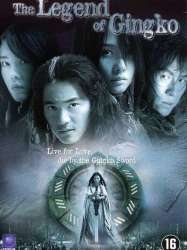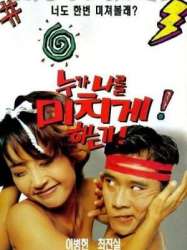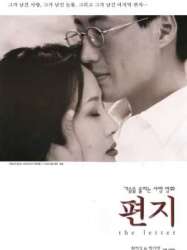Choi Jin-sil is a Actor Sud coréenne born on 24 december 1968 at Seoul (Coree du sud)

Choi Jin-Sil (December 24, 1968 – October 2, 2008) was a popular South Korean actress. She was considered one of the best actresses in South Korea, nicknamed "The Nation's Actress". She played leading roles in 18 movies and 20 television dramas and appeared in 140 commercials. She committed suicide by hanging on October 2, 2008, at her home in Seoul.
In 2000, her marriage to Cho Sung-Min received widespread attention in South Korea. Cho was a professional baseball player with the Yomiuri Giants of Japan. They first met on a television show in 1998. Choi gave birth to a son Hwan-Hee (2001) and a daughter Joon-Hee (2003).
Cho insisted that Choi was a blameful spouse through the press without filing a lawsuit for divorce in December 2004. It was senseless act according to South Korean civil law. Choi privately had the consideration period in connection with divorce for about two years from 2002 to 2004. Choi had not been sued for divorce for the period. In September 2004, Choi decided that she divorced Cho.
Cho committed a breach of marital fidelity, violence and defamation against Choi for about two years from 2002 to 2004. In addition, Cho borrowed money from Choi's mother and Choi's younger brother and defaulted on the debt; Cho was sued for it by them. In November 2002, Cho physically attacked Choi, who was then pregnant with their second child. In August 2004, Cho again assaulted her. The former violence was known to people in December 2002 by Cho and Cho insisted that the violence had been mutual attack to the press. Cho insisted that the latter violence also had been mutual attack, the press did an in-depth reporting of the case and Choi's wounded face was opened to the public. Choi, advertising model was sued by advertiser in connection with the open act. Many lawyers defined that the lawsuit was Violence against women, they helped Choi and the defense counsel composed of twenty five lawyers argued with the advertiser in favor of Choi in law court for free.
Choi took the parental rights and child custody over the children on condition of exempting Cho's debt to her mother and brother as well as dropping several charges against Cho. Cho could only visit his children regularly according to the mutual agreement. Choi became parent with sole parental right. Choi also received the document relinquished parental right from Cho and it was notarized by a lawyer.
In January 2008, the South Korean family register (hoju) was changed. As a result, children could use their maternal family name when the family members wanted it. According to the changed register, her children changed their surname from "Cho" (paternal family name) to "Choi" (maternal family name).
After Choi's death, her mother managed the inheritance and took custody of the children.
Allegations of domestic violence
In August 2004, Choi Jin-sil came forward and declared herself a victim of domestic violence. Subsequently the advertiser, Shinhan Engineering and Construction, claimed she did not keep her contractual obligation to "maintain dignity" because she disclosed to the public her bruised and swollen face which was caused by the violence of her then husband.
On June 4, 2009, the Supreme Court reversed a high court ruling that decided in favour of Choi in a compensation suit filed by the advertiser in 2004 against the actress, who was the model for its apartments. In handing down its ruling, the Supreme Court censured Choi for coming forward and declaring herself a victim of domestic violence, saying it constituted a failure to maintain proper "social and moral honour". Her two children became defendants as heirs.
On 9 June 2009, Korean Womenlink, the Korea Women's Hot Line, and the Korea Women's Association United issued a joint statement lambasting the ruling. Women's groups censured the Supreme Court for not realising the suffering of domestic violence victims, which included Choi. As to the ruling, the groups claimed that revealing the results of domestic violence was not a matter of "dignity" but a matter of "survival". "When a person is suffering, he or she needs to restore their dignity and social honour by disclosing the damage and seeking proper legal help as Choi did," a director of Korean Womenlink said.
Source : Wikidata
Choi Jin-sil

Nationality Coree du sud
Birth 24 december 1968 at Seoul (Coree du sud)
Death 2 october 2008 (at 39 years) at Seoul (Coree du sud)
Birth 24 december 1968 at Seoul (Coree du sud)
Death 2 october 2008 (at 39 years) at Seoul (Coree du sud)
Biography
In 1994, her former manager Bae Byeong-Su, who was an influential figure in the entertainment field, was murdered by her road manager. She was called in as a witness. The incident shocked the Korean public. Rumors circulated that she was implicated in the crime and she was defamed by unspecified individuals. She had a traffic accident in 1995. She came near being abducted in 1994 and 1998. She often suffered stalking.In 2000, her marriage to Cho Sung-Min received widespread attention in South Korea. Cho was a professional baseball player with the Yomiuri Giants of Japan. They first met on a television show in 1998. Choi gave birth to a son Hwan-Hee (2001) and a daughter Joon-Hee (2003).
Cho insisted that Choi was a blameful spouse through the press without filing a lawsuit for divorce in December 2004. It was senseless act according to South Korean civil law. Choi privately had the consideration period in connection with divorce for about two years from 2002 to 2004. Choi had not been sued for divorce for the period. In September 2004, Choi decided that she divorced Cho.
Cho committed a breach of marital fidelity, violence and defamation against Choi for about two years from 2002 to 2004. In addition, Cho borrowed money from Choi's mother and Choi's younger brother and defaulted on the debt; Cho was sued for it by them. In November 2002, Cho physically attacked Choi, who was then pregnant with their second child. In August 2004, Cho again assaulted her. The former violence was known to people in December 2002 by Cho and Cho insisted that the violence had been mutual attack to the press. Cho insisted that the latter violence also had been mutual attack, the press did an in-depth reporting of the case and Choi's wounded face was opened to the public. Choi, advertising model was sued by advertiser in connection with the open act. Many lawyers defined that the lawsuit was Violence against women, they helped Choi and the defense counsel composed of twenty five lawyers argued with the advertiser in favor of Choi in law court for free.
Choi took the parental rights and child custody over the children on condition of exempting Cho's debt to her mother and brother as well as dropping several charges against Cho. Cho could only visit his children regularly according to the mutual agreement. Choi became parent with sole parental right. Choi also received the document relinquished parental right from Cho and it was notarized by a lawyer.
In January 2008, the South Korean family register (hoju) was changed. As a result, children could use their maternal family name when the family members wanted it. According to the changed register, her children changed their surname from "Cho" (paternal family name) to "Choi" (maternal family name).
After Choi's death, her mother managed the inheritance and took custody of the children.
Allegations of domestic violence
In August 2004, Choi Jin-sil came forward and declared herself a victim of domestic violence. Subsequently the advertiser, Shinhan Engineering and Construction, claimed she did not keep her contractual obligation to "maintain dignity" because she disclosed to the public her bruised and swollen face which was caused by the violence of her then husband.
On June 4, 2009, the Supreme Court reversed a high court ruling that decided in favour of Choi in a compensation suit filed by the advertiser in 2004 against the actress, who was the model for its apartments. In handing down its ruling, the Supreme Court censured Choi for coming forward and declaring herself a victim of domestic violence, saying it constituted a failure to maintain proper "social and moral honour". Her two children became defendants as heirs.
On 9 June 2009, Korean Womenlink, the Korea Women's Hot Line, and the Korea Women's Association United issued a joint statement lambasting the ruling. Women's groups censured the Supreme Court for not realising the suffering of domestic violence victims, which included Choi. As to the ruling, the groups claimed that revealing the results of domestic violence was not a matter of "dignity" but a matter of "survival". "When a person is suffering, he or she needs to restore their dignity and social honour by disclosing the damage and seeking proper legal help as Choi did," a director of Korean Womenlink said.
Usually with
Filmography of Choi Jin-sil (9 films)
Actress

The Legend of Gingko (2000)
Genres Fantasy, Action, Adventure, Romance
Actors Sol Kyung-gu, Kim Suk Hoon, Kim Yoon-jin, Choi Jin-sil, Lee Mi-sook, Jeong Da-bin
Roles Bi
Rating53%





Depuis des decennies, la tribu des Mae combat la tribu des Hwasan, qui est protégée par l'esprit des Dieux. Pour mettre fin à leur exil forcé, les Mae décident de forger l'arme ultime : une épée sainte. Mais pour qu'elle soit parfaite, il faut un dernier sacrifice, celui de Vee, enfant issue d'une liaison entre les membres des deux tribus…

Holiday in Seoul (1997)
Directed by Kim Ui-seok
Genres Romance
Actors Jang Dong-gun, Choi Jin-sil, Cha Seung-won, Kim Min-jong, Jin Hee-kyung, Lee Geung-young
Roles Telephonist
Rating65%






Ghost Mama (1996)
, 1h45Genres Drama, Fantasy, Romance
Actors Choi Jin-sil, Kim Seung-woo, Jung Hye-sun, Kwon Hae-hyo, Jeon Soo-kyung, Lee Beom-soo
Roles Cha In-ju
Rating44%





The film tells the story of a happily married couple, Ji-seok and In-ju, who lived with their son Dabin until a tragic accident which left Dabin alive but caused In-ju's death one year later. Ji-seok tries to commit suicide; however only he can see In-ju as ghost, which comforts him.

Who Drives Me Mad? (1995)
Genres Comedy, Romantic comedy, Romance
Actors Choi Jin-sil, Lee Byung-hun, Choi Jong-won, Kim Ye-ryeong
Roles Kim Joo-young
Rating57%





Kim Jong-du, a salesman who believes that luck will change when he becomes a famous writer. However he is forced to give up after his story failed to win at a spring literature contest. Added to this is the fear that his girlfriend Joo-young will leave him. After Joo-young gets a job Jong-du realizes his mistakes that knows that she will never leave him.

How to Top My Wife (1994)
, 1h41Directed by Kang Woo-suk
Genres Comedy
Actors Park Joong-hoon, Choi Jin-sil, Uhm Jung-hwa, Choi Jong-won, Lee Ki-young
Roles Jang So-young
Rating60%





Park Bong-soo, the head of a film production company, falls in love and marries one of his employees, Jang So-young. They begin fighting constantly about how to manage the business, and Bong-soo embarks on an affair with Kim Hye-ri, an actress in one of the movies he's producing. When Hye-ri pressures him to leave his wife, Bong-soo finds it difficult to bring up the subject of divorce, so instead, he hires a hit man to kill So-young.

My Love, My Bride (1990)
, 1h51Directed by Lee Myeong-se
Origin Coree du sud
Genres Comedy, Romantic comedy, Romance
Actors Park Joong-hoon, Choi Jin-sil, Kim Bo-yeon, Jeon Moo-song, Choi Jong-won
Roles Oh Mi-young
Rating70%





Young-min works for a publishing company after his graduation upon a college, as dreaming of becoming a writer some day. He marries his college sweetheart, Mi-young, believing that their love would be everlasting.
 , 2h38
, 2h38Directed by Chung Ji-young
Genres Drama, War, Biography, Historical
Themes Films about writers, Films about journalists, Political films
Actors Ahn Sung-ki, Choi Jin-sil, Choi Min-soo, Lee Hye-young, Im Ho, Dokgo Young-jae
Roles Park Min-ja
Rating64%





Le jeune reporter Lee Tae rejoint les combattants communistes comme correspondant de guerre. Partagé entre son idéalisme et la réalité des atrocités du conflit, plusieurs rencontres décisives le poussent à s'engager du côté des partisans.
 Connection
Connection




